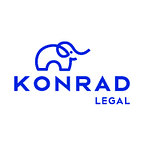How to get an e-commerce license in Thailand?
If your business in Thailand involves selling goods online or via e-commerce platforms, this situation necessitates your requirement to apply for an e-commerce license in Thailand. In the digital age, many businesses harness the internet’s potential to expand their reach and boost sales. E-commerce offers a global marketplace, enabling enterprises to engage with a vast network of customers worldwide.
Moreover, this business model often requires lower investment levels compared to traditional brick-and-mortar establishments. However, it’s important to note that online businesses operating in Thailand must obtain an e-commerce license to ensure their legal compliance.
The Thai Electronics Transaction Act governs the application process for e-commerce licenses in Thailand. Leading corporate law firms in Thailand with licensing capabilities are well aware of this act, but, you should also have an idea of it. Let us share the same with you!
Thai Electronics Transaction Act: Comprehensive Overview
The Electronic Transactions Act (ETA) governs civil and commercial electronic transactions in Thailand. It aims to encourage the use of electronic technology by minimizing uncertainty about the legal validity of electronic information. It also emphasizes that certain legal requirements through physical paperwork should meet the electronic process as well.
The ETA is based on the premise that data messages when specific conditions are met, have the same legal standing as other written documents. To clarify, data messages encompass all electronically generated, sent, received, stored, or processed information. Examples of data messages include e-mails, telegrams, telexes, and faxes.
In addition to the aforementioned, the Electronic Transactions Act (ETA) sets licensing and registration requirements for electronic transactions and provides a general framework for such transactions involving the public sector. The Electronic Transactions Commission promotes and develops electronic transactions and monitors the operations of businesses providing services related to electronic transactions. These services require prior notification and registration to obtain the necessary license.
Entrepreneurs selling products online should also be aware of the provisions of the ETA, as Thailand’s e-commerce industry is growing rapidly and Thai consumers are increasingly purchasing products online.
Documents Required to Obtain E-commerce Business in Thailand
To acquire an e-commerce license in Thailand, the applicant must provide the following documents at the District Office of the province of the main office (if outside of Bangkok) or at the Bangkok Metropolitan Administration:
- Application for e-commerce registration (Tor. Por. form with the attachment), including details of your website.
- ID card or passport of the applicant:
- For an individual: ID card or passport
- For a juristic person: ID card or passport of the authorized director and the company affidavit
3. Power of attorney (if applicable)
4. Clarification letter (in the event of late registration)
Information Required to Obtain E-commerce License in Thailand
To apply for an e-commerce license in Thailand, the website must be operational, and the website owner must provide the following details:
- Website name.
- Nature of goods or services sold.
- Start date of website operation (application must be made within 30 days).
- Payment methods accepted.
- Domain name registration or certification document from the service provider.
- Map showing the business location.
In case the commercial operator doesn’t have a landlord, the following additional documents are required:
- Letter of consent to use the premises or a rental contract.
- Copy of the location owner’s ID card and house registration or documents showing ownership of the property.
When and how to apply for an e-commerce license in Thailand?
Online business owners must obtain an e-commerce license within 30 days of starting operations. To do so, an application form must be submitted either to the District Office where the head office is situated or to the Bangkok Metropolitan Administration.
If your head office is outside Bangkok, you have to apply to the Provincial Administration Organization.
In case the process seems daunting and you are unable to pave through the correct path or channels, let us help you out. Our team of experienced Thai corporate law professionals and licensing experts will surely take you out of the dilemma.
Originally published at https://www.konradlegal.com on June 22, 2024.
